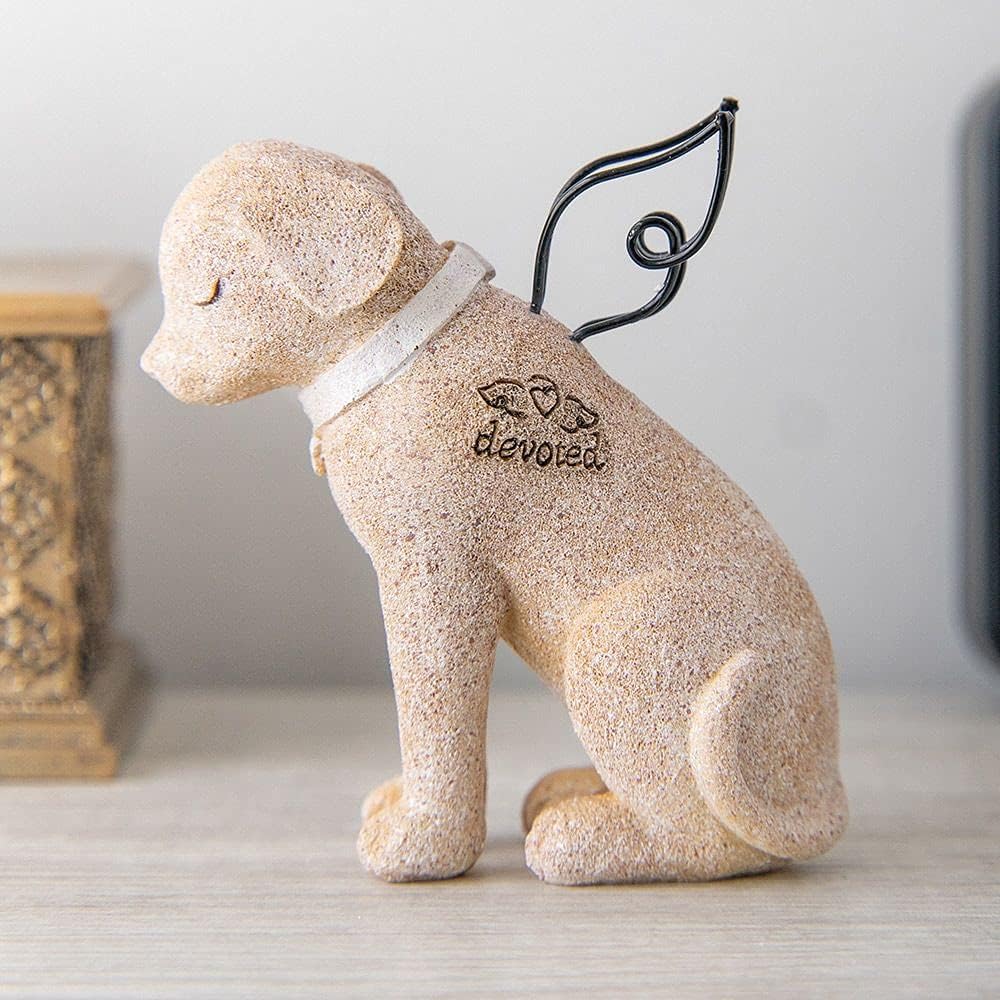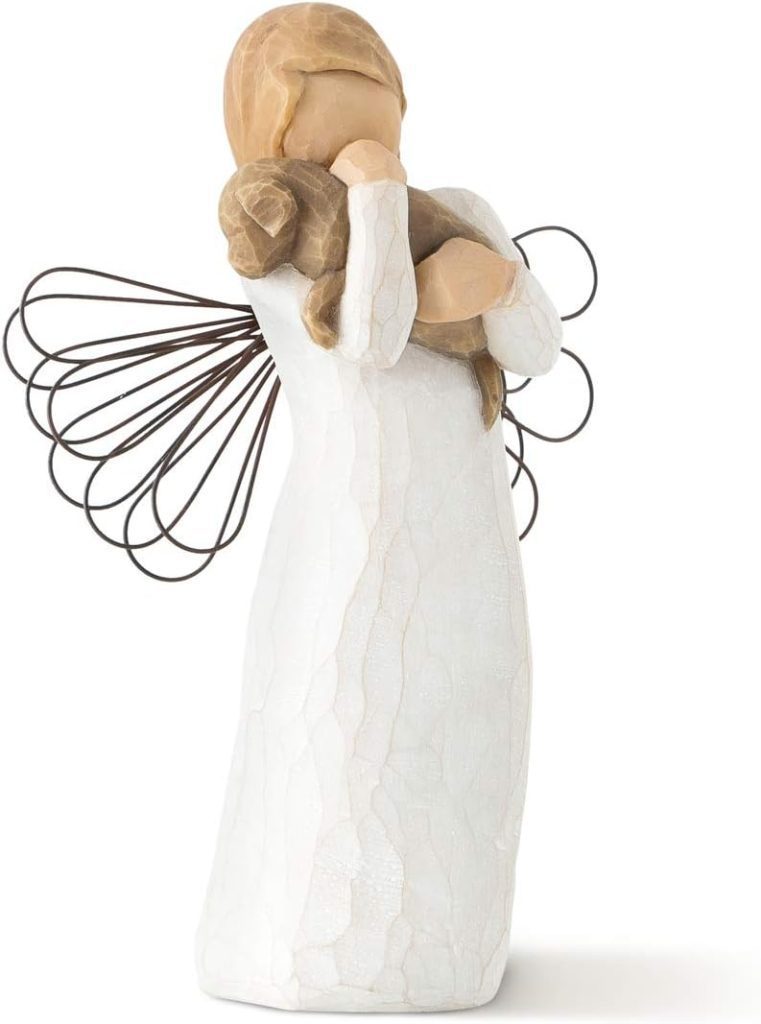Overcoming Grief: Coping with Losing a Dog
Post Disclaimer
We may earn a commission for purchases made using our links. Please see our Disclaimer to learn more.
Coping with Losing a Dog: Healing Strategies
Losing a dog can be one of the most difficult experiences you’ll ever face. Dogs are more than just pets; they’re members of our family, and their loss can leave an emptiness in our hearts that’s hard to fill. Grieving for your beloved furry friend is normal, and it’s important to understand the emotional toll that losing a pet can take on you. In this blog post, we will help you navigate through the grieving process by discussing how to cope with the pain of losing your dog, tips to help you through the mourning process, and understanding the grief of pet loss. We will also address some common questions like “Can Losing a Pet be as Painful as Losing a Human?” so that you can know how to deal with this delicate situation. Keep reading to learn more on this topic.
Understanding the Grief of Losing a Dog
Losing a beloved pet can bring about an overwhelming wave of sadness and grief. The emotional toll of losing a dog is immense, as they are oftentimes considered cherished family members. Coping with the loss of a pet can be emotionally challenging, as the bond between a dog and its owner is profound. Processing the emotions associated with losing a dog is a crucial part of the healing process.
Grieving for a dog is a natural response to the loss of a beloved companion. It is not uncommon for pet owners to experience a profound sense of loss when their furry friend passes away. The sadness and pain felt after losing a dog can be compared to the grief experienced when losing a human loved one. The unconditional love and companionship provided by a dog can leave a lasting impact on our lives, making their absence deeply felt.
During grief, it is important to remember that mourning the loss of a pet is a normal and valid response. Crying and feeling a deep sense of sorrow is a natural part of the grieving process. Seeking support from friends, family, and even a veterinarian can provide comfort during this difficult time. Reflecting on the long life and great memories shared with a dog can also help ease the pain of their absence.
Overall, understanding the grief of losing a dog involves acknowledging the deep sense of loss and allowing oneself to process the emotions associated with it. Grieving for a dog is a natural response to losing a cherished family member. By embracing the mourning process, seeking support, and remembering the joy and love shared, it is possible to navigate through the grief and find healing.
Is It Normal to Grieve for a Pet? 
Grieving for a pet is a common and valid experience. Pets are often considered family members, intensifying the emotional connection and the grieving process. Each person’s grief is unique, influenced by factors like the length of the pet-owner relationship and the circumstances of the pet’s passing.
How to Navigate Through the Grieving Process
Give yourself permission to grieve and allow yourself to experience the range of emotions that come with losing a beloved dog. It’s natural to feel overwhelming sadness, pain, and even anger when dealing with such a significant loss. Remember to seek support from a trusted vet or pet care professional during this difficult time. Remember that it’s okay to cry and express your emotions openly, as this is a crucial part of the healing process.
Engaging in self-care activities is another essential aspect of navigating through the grieving process. Take the time to engage in activities that promote healing and help you process your emotions. This could include going for walks to clear your mind, practicing mindfulness or meditation, journaling, or engaging in hobbies that you find comforting. Taking care of your physical and mental well-being is crucial during this grieving period.
If the grieving process becomes overwhelming and you find it difficult to cope, consider seeking professional help, such as therapy or counseling. A trained therapist can provide guidance and support as you navigate through your grief. They can help you process your emotions, develop coping strategies, and provide a safe space for you to express your feelings.
Creating rituals or memorials to honor and remember your beloved dog in June can also be a meaningful way to navigate through the grieving process. This could include planting a tree in their memory, creating a photo album or scrapbook of cherished memories, or even writing a letter to your furry friend expressing your love and gratitude. These rituals can provide solace and help keep the memory of your dog alive.
Remember, the grieving process is different for everyone, and there is no right or wrong way to navigate through it. Take the time you need to heal and honor your dog’s memory in a way that feels right to you. Remember that your dog brought you so much joy and love during their time with you and that they lived a great life.
Can Losing a Pet Be as Painful as Losing a Human?
Losing a pet can be just as emotionally devastating as losing a human loved one. The strong bond and attachment we have with our pets can lead to profound grief, feelings of emptiness, loneliness, and much pain. While society may downplay the pain of losing a pet, the emotional impact is significant and should not be invalidated. It is common for people to turn to their faith and seek comfort in god during these difficult times.
Coping with the Pain of Losing Your Dog
Allowing yourself to fully experience the sadness and pain that comes with losing your beloved dog is an important step in the grieving process. It’s normal to feel a deep sense of loss and to shed tears when remembering the precious moments spent together. Acknowledging these emotions is a crucial part of healing.
Finding healthy outlets for your emotions can provide comfort and help you cope with the pain. Consider journaling about your feelings and memories of your dog. This can be a therapeutic way to express yourself and process your grief. Engaging in physical activities, such as taking walks or practicing yoga, can also serve as a release for built-up emotions.
Surrounding yourself with a supportive network of understanding and empathetic individuals can make a significant difference during this difficult time. Share your thoughts and feelings with family, friends, or even support groups who have experienced a similar loss. Having someone to lean on and talk to can provide comfort and a sense of belonging.
Seeking solace in activities that bring you comfort and joy can help ease the pain of losing your dog. Whether it’s spending time in nature, listening to soothing music, or engaging in a hobby you love, these activities can provide a much-needed respite from grief. It’s important to remember that finding moments of happiness and peace does not diminish the love and bond you had with your dog.
Lastly, remember that healing takes time and everyone grieves at their own pace. Allow yourself to mourn, and don’t rush the process. Each person’s journey through grief is unique, and there is no set timeline for moving forward. Be patient with yourself and trust that, with time, the pain will gradually lessen, and you’ll be able to cherish the memories of your dog while embracing life again.
Tips to Help You Through the Mourning Process
To help you navigate through the mourning process after losing your beloved dog, several tips can provide comfort and support. Firstly, it’s important to take care of yourself physically. Maintaining a healthy routine and ensuring you get enough rest will help you cope with the emotional toll of losing a pet.
In addition, expressing your feelings through creative outlets can be incredibly therapeutic. Whether it’s writing in a journal, engaging in art, or playing music, these activities allow you to process your grief in a meaningful way.
Seeking solace in nature can also bring peace during this difficult time. Whether it’s going for long walks or simply spending time in peaceful outdoor settings, connecting with the beauty of the natural world can help soothe your soul and provide a sense of calm.
Another way to honor the memory of your beloved dog is by considering acts of kindness or charitable donations. Whether it’s donating to an animal shelter, volunteering your time, or performing random acts of kindness in your dog’s name, these gestures can provide comfort and a sense of purpose.
Lastly, allow yourself to reminisce about the happy memories you shared with your dog. Reflecting on the joy and love you experienced together can bring comfort and healing. Remembering the significance of the bond you had with your furry friend can help ease the pain of their loss.
By following these tips, you can navigate through the mourning process and find solace in the midst of your grief. Take care of yourself physically, express your feelings creatively, seek solace in nature, consider acts of kindness, and allow yourself to reminisce about the joyous moments you shared with your beloved dog. Remember, grieving is a unique process, and it’s important to give yourself the time and space to heal.
Understanding the Grief of Pet Loss
Losing a beloved pet can result in a profound sense of grief and loss. The emotional bond between a pet and its owner is often deep and meaningful, which intensifies the sadness when they are no longer present. This grief is unique to each individual and may be difficult for others who haven’t experienced it to fully comprehend. The process of grieving for a pet can encompass a range of emotions, from overwhelming sadness to feelings of guilt.
When a pet passes away, it’s not uncommon for their owner to feel a deep sense of sadness and longing. Many people find themselves crying and mourning the loss of their furry companion. The pain of losing a pet can be just as significant as losing a human loved one, as pets often play a significant role in our lives and provide unconditional love and companionship.
It’s important to acknowledge and validate the grief associated with losing a beloved pet. Some individuals may try to dismiss or minimize the pain, but it’s crucial to remember that everyone experiences grief differently. For some, losing a pet can be as heart-wrenching as losing a close friend or family member.
Grieving the loss of a pet is a personal and individual journey. Some individuals may struggle with guilt, questioning if they could have done more to prevent their pet’s passing. Others may find solace in the memories and happy moments shared with their pet over their long life. Whatever the case may be, it’s important to give oneself permission to grieve and honor the bond that was shared.
In conclusion, losing a pet can result in a deep sense of grief and loss. The emotional bond between a pet and its owner can be profound, leading to intense sadness. Grieving for a pet is a unique experience that may not be fully understood by those who haven’t experienced it. The grieving process for pet loss can encompass a range of emotions, from sadness to guilt. It’s important to acknowledge and validate the grief associated with losing a beloved pet.
Frequently Asked Questions
What are some common emotions experienced after losing a pet?
Common emotions experienced after losing a pet include grief, sadness, and depression. Some individuals may also feel guilt, anger, and denial. The loss can create a sense of emptiness or loneliness. It’s important to allow yourself time to grieve and seek support from loved ones or a therapist.
Are there support groups or resources available for those grieving the loss of a dog? 
Yes, support groups and resources are available for those grieving the loss of a pet. The Association for Pet Loss and Bereavement (APLB) offers online chat rooms and forums, and some veterinary clinics provide grief counseling services. Books like “The Loss of a Pet” by Wallace Sife and “Goodbye, Friend” by Gary Kowalski can also offer comfort and support. There is also online help Two Hearts Pet Loss Center – A Companion for your Journey
Is it normal to feel guilty or second-guess decisions made regarding my pet’s health and care?
Feeling guilty or second-guessing decisions made about your pet’s health and care is a common part of grieving. Remember that you did the best you could with the resources and information available to you. Talking to a therapist or grief counselor can provide support and help process these emotions. Cherishing happy memories with your pet can bring comfort during this difficult time.
How can I cope with the loss of my dog?
dog?
Coping with the loss of a beloved dog can be immensely challenging. Allow yourself to grieve and process your emotions, seek support from understanding friends or professionals, create a memorial to honor their memory, and focus on the love and joy they brought into your life.
Conclusion
Losing a beloved dog can be an emotionally devastating experience. It is important to understand that grieving for a pet is a normal and valid process. The bond we share with our furry friends is incredibly special, and the loss of that companionship can be just as painful as losing a human loved one. Coping with the pain of losing your dog requires time, self-care, and support from others who understand the depth of your grief. Remember to be patient with yourself as you navigate through the mourning process. Allow yourself to feel your emotions and seek solace in cherished memories. Reach out to support groups or consider therapy to help you heal. Losing a dog is a profound loss, but with time, love, and support, you will find a way to honor their memory and continue living a fulfilling life.






 dog?
dog?

